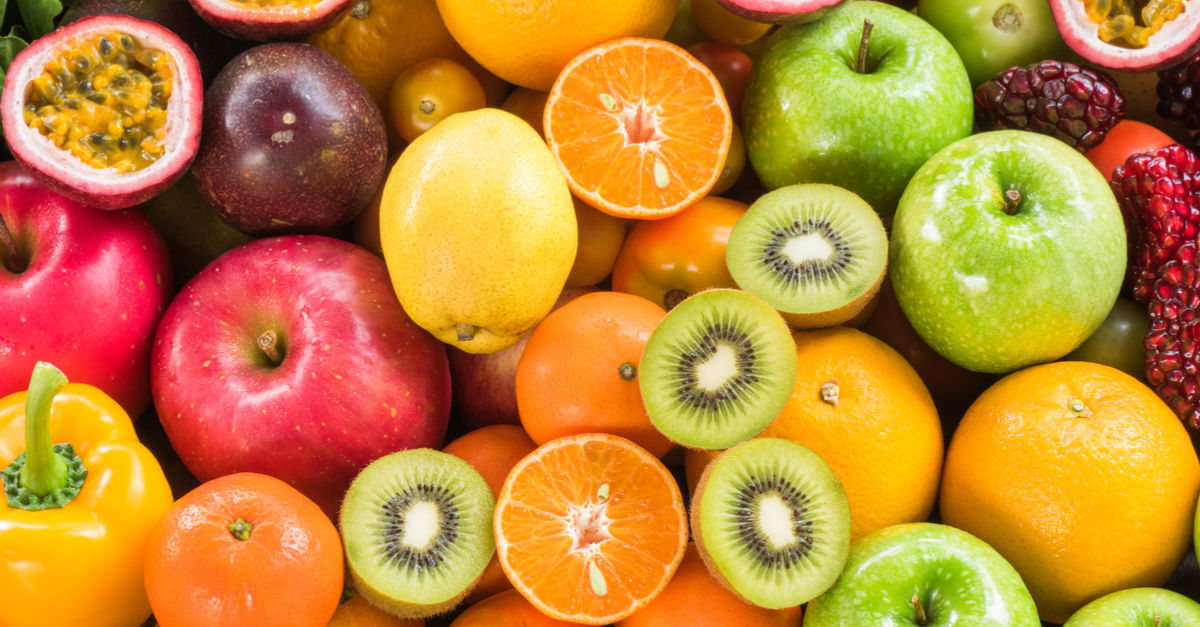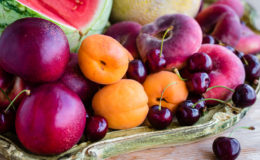Vitamin C – a simple support towards optimal wellness
The season is changing and it’s time to dig out the sweaters and scarves. For many of us it’s also time to pay a little extra attention to bolstering our immune systems and ‘sweater weather’ and ‘cold & flu season’ tend to be synonymous. Most of us learned as kids that vitamin C is good for us when we’re sick. Let’s dig a little deeper. Turns out Vitamin C has the potential to prevent a lot of sickness.
We learned in history class that scores of seaman died of scurvy during the Age of Exploration brought on from vitamin C deficiency. Symptoms of the disease are described in detail in literature and provoked a great deal of suffering. Physical symptoms range from the breakouts on the skin to inflamed gums to the small arteries of the cardiovascular system and oxidative stress from lack of vitamin C leads to a complete breakdown of the central nervous system. The British Navy discovered that citrus fruits could prevent this suffering as early as 1753 which resulted in British sailors being called ‘Limeys’ because they nourished themselves with limes collected during their travels. It wasn’t until 1912 that vitamin C as we know it was discovered and then isolated more than a decade later in 1928. In 1937 a Nobel Prize was awarded for further research related to Vitamin C. The connection between Vitamin C and the common cold drew attention from 1970 and in the late 1980s an inverse relationship was shown between vitamin C and cancer. While most animals’ biology allows that they are able to produce their own vitamin C, humans, other primates, and guinea pigs depend on external sources.
Vitamin C is a water-soluble vitamin found in fruits and vegetables It exists in higher concentrations in citrus fruits, kiwis, bell peppers, and rosehips; however, many fruits, vegetables, and sea vegetables contain some vitamin C. Vitamin C is known to boost immunity and is also responsible for a vast array of cellular functions. It plays an important role in the synthesis of hormones and neurotransmitters. Vitamin C is responsible to combat fatigue, stimulate iron absorption, and maintain healthy gums. It is required for recovery of the muscular and skeletal systems including muscles, bones, tendons, and ligaments and to integrate collagen and vitamin E in skin cell recovery. Furthermore, it accelerates wound recovery and plays an important role in the metabolism of bile and acids which effects blood cholesterol levels and gallstones. Studies have shown that adequate vitamin C may play a role in stroke prevention, decrease risk of developing diabetes, and protect against memory loss and cognitive decline. There is virtually no system in the body that is not supported by vitamin C. For optimal health and wellness, vitamin C is an important piece of the puzzle regardless of specific goals and conditions.
The body is only able to store a certain amount of vitamin C at a one time and it is continually being used while as a part of functions described in the previous paragraph. This metabolism happens at various rates depending on lifestyle circumstances, specifically levels of stress. Many of us already know that increased consumption of vitamin C accelerates recovery and healing from wounds and viruses. Interestingly, Dr. Nasha Winters and Jess Higgins Kelley share in The Metabolic Approach to Cancer that vitamin C is considered the “most important vitamin involved in adrenal metabolism. The more cortisol is produced, the more vitamin C is used by the body, which is why people often get sick after a stressful event.” They advise that vitamin C be consumed several times a day during periods of high stress. This suggests that anyone with unusual amounts of stress in their lives due to parenthood, sports training, job expectations, financial concerns, grief, discontentment, and so much more can lead to vitamin C depletion and physical and mental health consequences.
Upon further investigation, Winters and Kelley explore biochemical pathway of vitamin C. Most recent research has illustrated that Vitamin C and sugar share a common pathway in the body. Therefore, when there is too much sugar being consumed in relation to vitamin C, the vitamin C may not have the opportunity to be absorbed because the sugar will have hijacked that pathway. The conclude that “sugar essentially negates the immune benefit of vitamin C.”
This causes me to wonder if it’s really ‘sweater weather’ and the change in climate that triggers the parallel ‘cold&flu’ season. Is it possible that we are more stressed once summer vacation has concluded and we are back into a more rigorous routine? Instead of the freedom and fresh bounty of summer, we become relegated to packaged snacks while on the go and in the office. How many of us have found ourselves under the weather following indulgent holidays like Halloween, Thanksgiving and Christmas? Imagine the brutal combination of stress and holiday treats and lack of sleep for many students and workers facing deadlines before a holiday.
Stay healthy and keep the immune system strong with vitamin C this season by consuming plenty of fresh fruits and vegetables and limiting intake of sugar and other processed foods. The fresher the produce the greater amount of nutrition it will provide.
A simple Google search will link to lots of interesting information about vitamin C. the following books and articles provide information about Vitamin C and other essential nutrients:
-Deep Nutrition by Dr. Catherine Shanahan
-The Metabolic Approach to Cancer by Dr. Nasha Winters and Jess Higgins Kelley
-https://www.bbc.co.uk/news/uk-england-37320399
-https://www.sciencelearn.org.nz/resources/1690-vitamin-c-history-timeline







